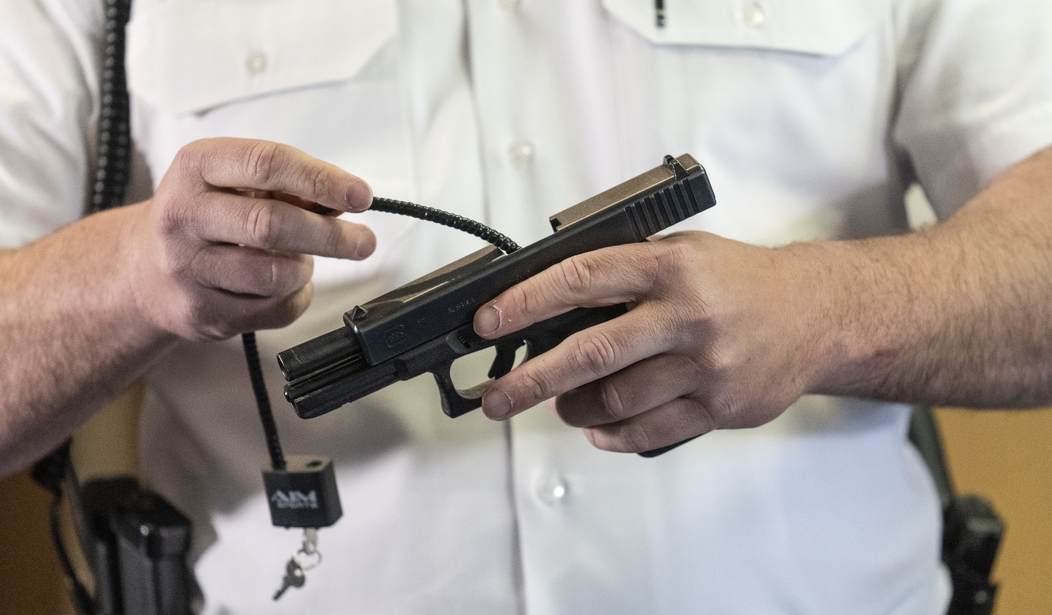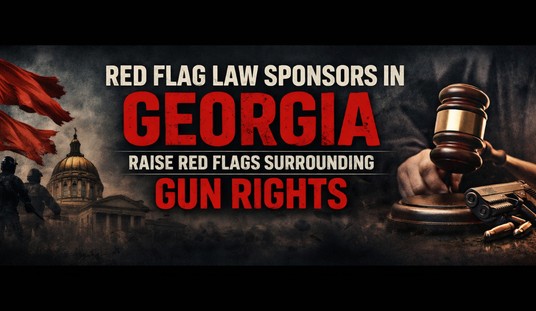Almost three hundred Michiganders were stripped of their ability to lawfully purchase and possess a gun through the use of the state's Extreme Risk Protection Order law in the first year of its existence, and supporters are hailing those numbers as a sign of success.
There were 391 petitions filed across the state in 2024, with 287 petitions approved and 87 denied. According to the State Court Administrative Office, another 14 petitions were either dismissed or orders rescinded after a hearing was held.
Some press outlets are touting the benefits of the "red flag" law, including Hoodline's Sarah Johnson, who claims that "lthough determining the exact number of lives saved is difficult, there is a noted correlation with decreased criminal offenses."
Correlation doesn't equal causation, of course, and there are plenty of cities and states without "red flag" laws that have also seen large declines in reported homicides and non-fatal shootings. "Red flag" laws are also billed as a way to reduce suicides, but since we don't have any official figures on how many Michigan residents took their own lives last year, it's impossible to say if the ERPO law has had any measurable impact one way or the other.
The State Court Administrative Office did report, however, that 31 individuals subject to an ERPO order were later arrested and charged with crimes. Oddly, the report claims that "from available data, no charges were for refusing or failing to comply with an ERPO, however, 22 charges were related to firearms or ammunition." The available data also undercuts one of the chief arguments deployed in support of "red flag" laws; that once firearms are removed from the equation an individual who poses a danger to themselves or others is no longer a threat.
The State Court Administrative Office found that, among those arrested after an ERPO was issued, the most common charge was domestic violence. The second most common charges were assaulting/resisting/obstructing a police officer and reckless use of a firearm. We don't know how many of those individuals subject to an ERPO petition might have been arrested or charged with a crime if no petition had been filed, but the fact that more than 10% of those who were under an ERPO faced criminal charges afterward is a stark reminder that the law does nothing to deal with the dangerousness of any particular individual. Instead, once any legally owned firearms have been removed, the state considers the problem to be solved, though that's clearly not the case.
Though the state's "red flag" law requires the State Court Administrative Office to compile a yearly report on the use of ERPO petitions, the first report is woefully short on details. We know that 31 individuals were arrested after a petition was granted, but the report is silent on the number of respondents who took their own life despite having an active "red flag" order in place. We don't even know the general age, gender, or race of many individuals subject to a petition. The report found, for instance, that of the 391 individuals who were the focus of a petition (whether or not one was granted), the age of 160 of them is unknown. There's a similar number of unknowns when it comes to gender (158) and race (170), though among those respondents whose demographic details are known, petitions were far more likely to be filed against white males than women or racial minorities.
You can read the entire report for yourself here, but there's not much more to glean from the data than what we've reported here... and not nearly enough information to proclaim the state's "red flag" law a success, either in terms of reducing violent crime or self-harm.








Join the conversation as a VIP Member